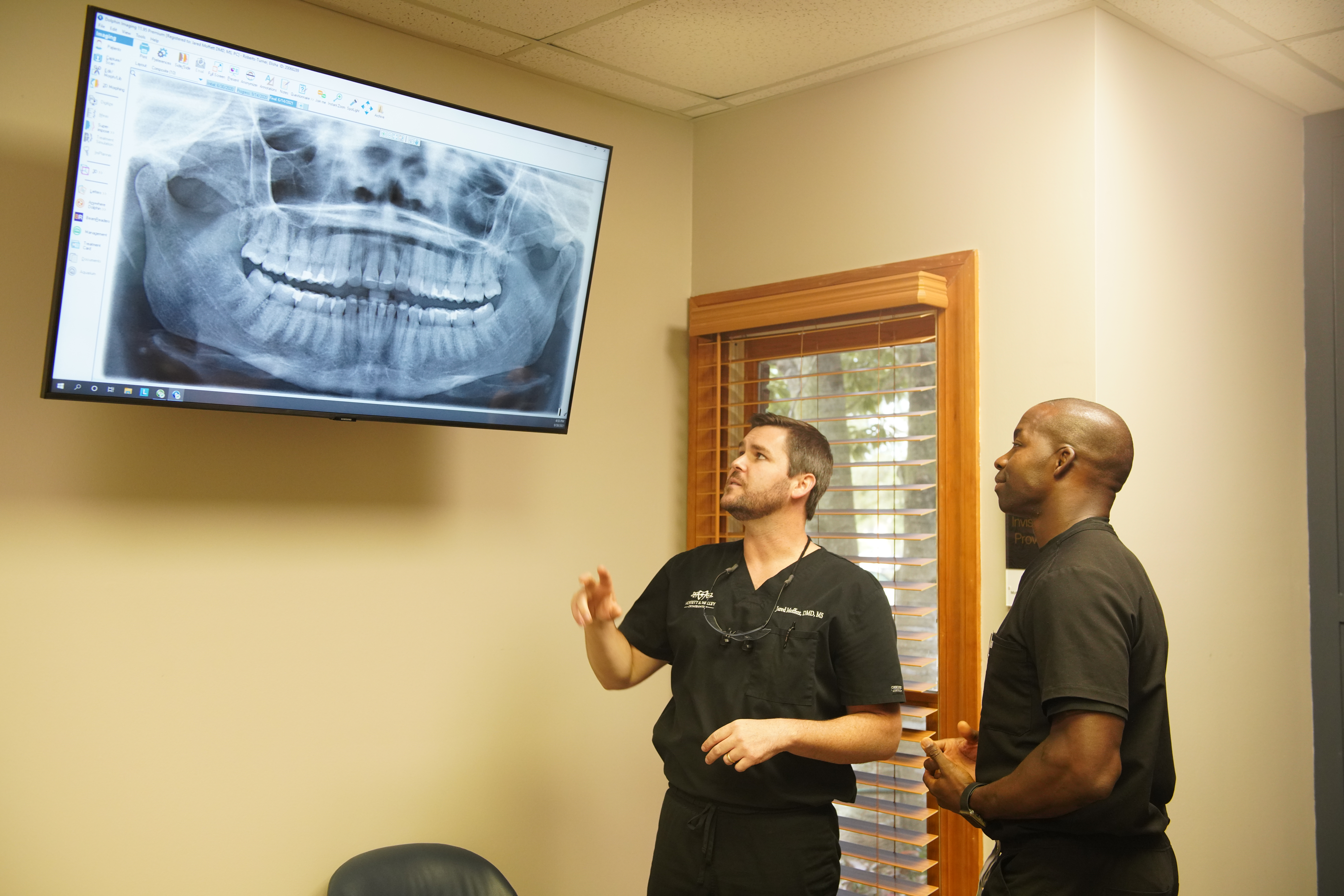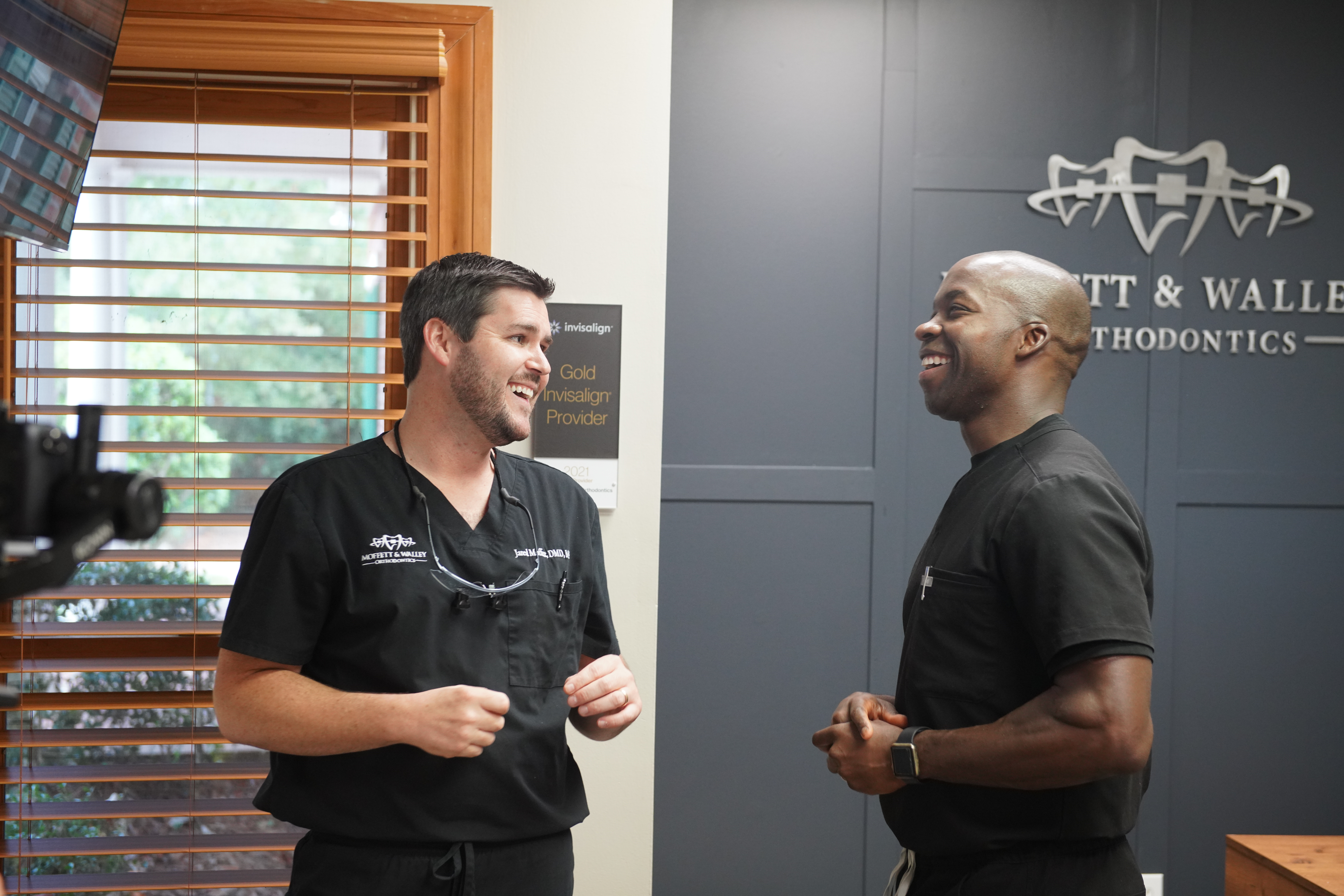If you’re anything like us down at Moffett & Walley Orthodontics, you really need a good night’s sleep! We work hard, and so when it’s time to rest, we take it pretty seriously. And there’s a little-understood issue that millions of Americans deal with every night that’s robbing them of restful hours, and that’s bruxism. Bruxism is the proper name for grinding your teeth, and teeth grinding at night, in particular, has all sorts of implications for your sleep cycle, your dental health, and even your well-being! Dr. Moffett and the team at Moffett & Walley Orthodontics have the solutions you need, so read on to learn more.
What is Bruxism, and Why Does It Matter?
Bruxism, commonly known as teeth grinding, is the unconscious habit of grinding or clenching teeth, predominantly occurring during sleep. While it often evades conscious awareness, its impact can be far-reaching, extending beyond the boundaries of the night. The American Medical Association’s estimates reveal that more than 30 million Americans experience bruxism, yet only a fraction receive an official diagnosis. This seemingly innocuous behavior might be easy to overlook, but its consequences should not be underestimated.
How Can It Affect My Dental Health?
While teeth-grinding is a common phenomenon, with millions of Americans, often undiagnosed, who suffer from it, it can have lasting consequences. Over time, the continuous grinding and clenching exert excessive force on the teeth and jaw muscles. This persistent pressure can lead to a host of complications that extend far beyond the realm of mere oral discomfort. As the enamel wears down and teeth become vulnerable, the potential for heightened sensitivity, pain, and even damage amplifies.
Not only that but the ongoing tension and stress placed on the jaw muscles can reverberate throughout the head and neck, leading to headaches and muscular discomfort. The strain on teeth and supporting structures can disrupt the delicate balance of the temporomandibular joint (TMJ), which can, in time, lead to the development of temporomandibular joint disorder (TMD).
Looking at it from this perspective, we can see why understanding bruxism isn’t just about your dental health but your health overall, too! Recognizing the prevalence of bruxism and its potential to impact quality of life underscores the importance of seeking effective solutions and management strategies. In the following sections, we will explore the role of orthodontic interventions in addressing bruxism-related discomfort and offering a path toward improved oral health and holistic wellness.
How Can Orthodontic Treatment Help?
Great question! Luckily, Dr. Moffett and the team at Moffett & Walley Orthodontics have plenty of experience working with patients who suffer from bruxism and its consequences.
Oftentimes, the problems that lead to grinding your teeth at night can be fixed by a primary course of care with standard orthodontic treatment. A course of care with braces or Invisalign, for example, can address dental misalignments and provide a potential remedy for the grinding and clenching that come with night-time bruxism.
A Closer Look at Your Care
Let’s take a look at two of the most common orthodontic treatments and how they can help:
- Braces – A standard of orthodontic care that consists of brackets and wires working in harmony to gradually reposition teeth into proper alignment. By correcting dental misalignments, braces create a balanced bite, reducing the strain on your jaw muscles.
- Invisalign – a more discreet alternative, Invisalign offers a series of clear, removable trays that gently guide teeth into the desired positions. Both of these orthodontic options contribute to aligning the teeth and jaw, which can alleviate the urge to grind during sleep.
Treating the Cause
It’s important to note that orthodontic treatments not only provide a potential solution for the symptoms of bruxism but also address its underlying causes. Dental misalignments, which often lead to bruxism, are effectively tackled through orthodontic interventions. By creating an ideal alignment, these treatments help normalize your bite and reduce the risk of jaw strain and grinding.
Customized Treatment Plans
Dr. Moffett and everyone here in the Moffett & Walley team takes a personalized approach to each and every patient’s bruxism concerns — and that means you! We’ll perform a series of thorough assessments and evaluations, then work with you to find the best orthodontic treatment for your needs and goals. Orthodontics has come a long way, and there’s a lot of variety in how you want to approach your care!
Beyond Bruxism: Orthodontics and Overall Wellness
The benefits of orthodontic interventions extend beyond bruxism management. The corrected alignment achieved through orthodontic treatments offers a myriad of advantages, including enhanced aesthetics, improved bite functionality, and reduced risks of future dental complications. By addressing the root causes of bruxism and aligning the teeth and jaw, orthodontic solutions foster comprehensive oral health, contributing to overall well-being.
Why Wait? Your Consultation is Free!
At Moffett & Walley Orthodontics, we’re proud to provide the amazing people of Madison and Clinton with friendly, affordable, and expert orthodontic care. Whether you’re dealing with grinding your teeth at night or you just need braces for the kiddos, we’ve got what you need! So give us a call today, and we can set you up with your 100% free consultation. We can’t wait to see your smile!

